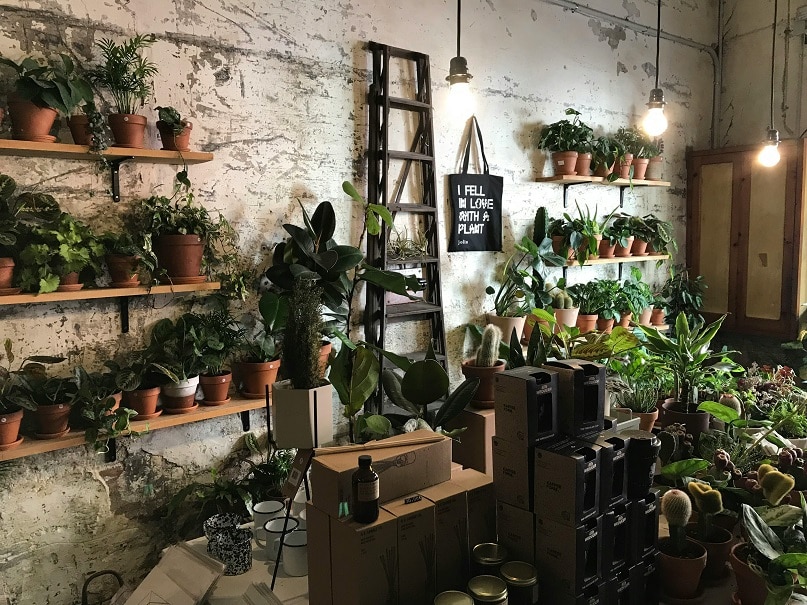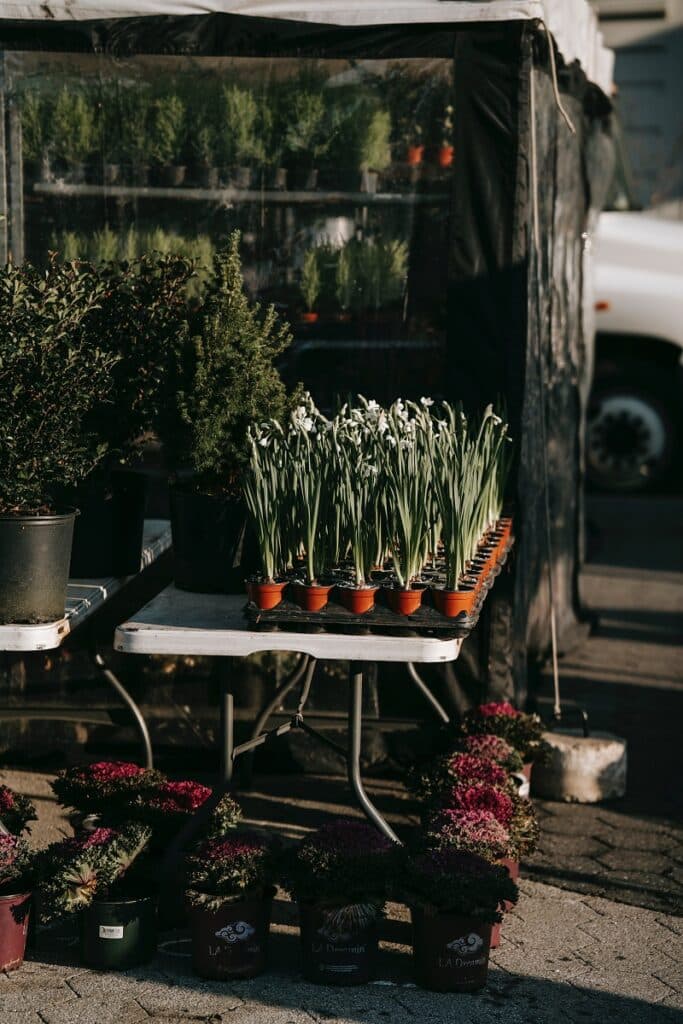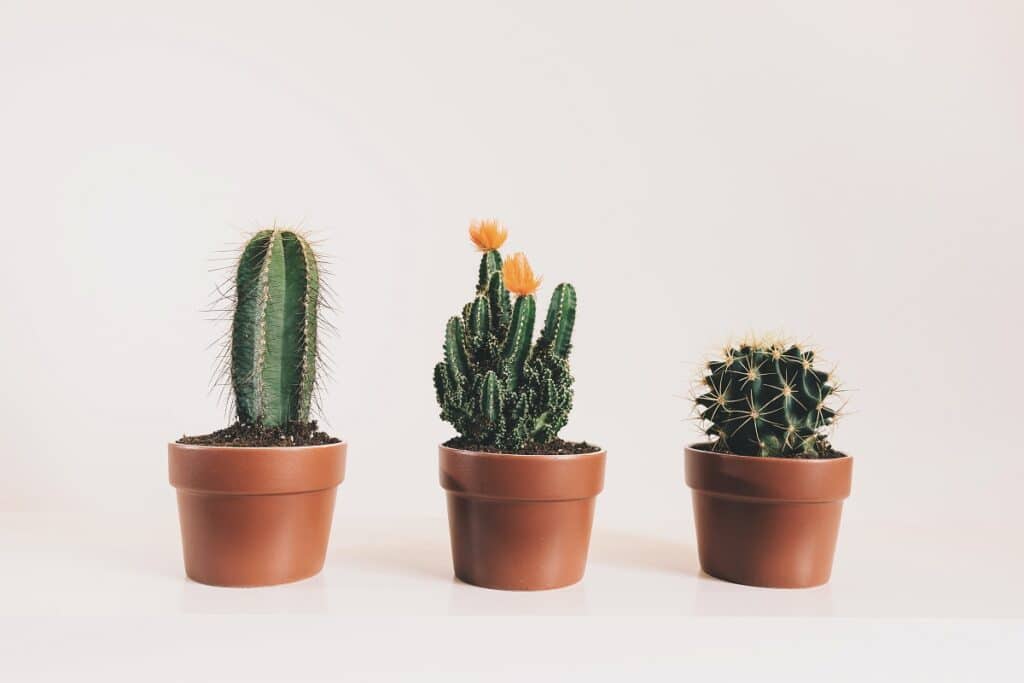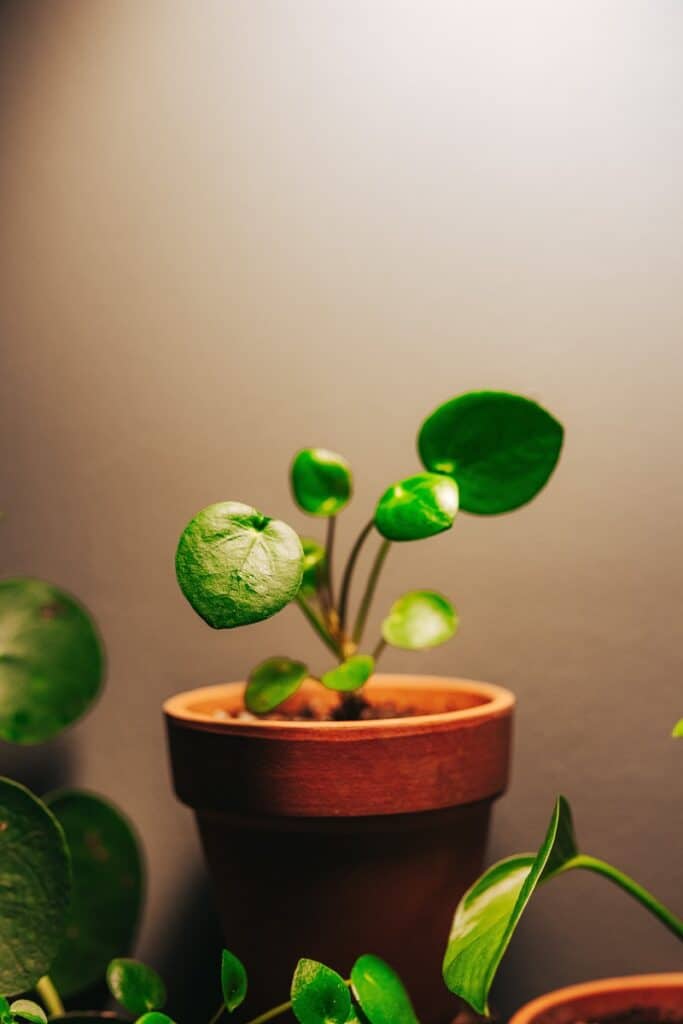Got a nose for a pleasant fragrance? Look no further! We’ve rounded up a list of 10 indoor plants that make the house smell good and turn into a heavenly-scented oasis.
From the calming aroma of lavender to the refreshing scent of eucalyptus, these green beauties not only add a touch of nature to your living space, but also fill the air with delightful fragrances. So, whether you’re after a cheerful citrusy smell or a soothing herbal scent, these indoor plants have got your olfactory senses covered. Get ready to breathe in the bliss!

Top Indoor Plants that make the House Smell Good
1. Jasmine
Jasmine is not only known for its beautiful white flowers, but also for its intoxicating scent that can instantly create a calming and serene atmosphere in your home. But the benefits of jasmine don’t end there. This fragrant flower has been known to reduce stress levels and promote relaxation. In addition, it can also improve sleep quality and help with insomnia.
1.1 Benefits
The sweet and soothing fragrance of jasmine has therapeutic effects on the human mind and body. When inhaled, jasmine essential oil can activate certain receptors in the brain that help regulate mood and emotions. This can lead to a reduction in anxiety and a general sense of well-being. Jasmine also has antimicrobial properties, making it a natural air purifier that can protect you from airborne bacteria and viruses.
1.2 How to care for Jasmine
To keep your jasmine plant healthy and thriving, it is important to provide it with the right conditions. Jasmine loves bright, indirect sunlight, so placing it near a window is ideal. It also prefers well-draining soil and should be watered regularly to keep the soil consistently moist but not soggy. Ensure proper drainage by using a pot with drainage holes and avoid overwatering, as this can lead to root rot. Pruning your jasmine plant regularly will help maintain its shape and encourage new growth.
1.3 Recommended species for indoor use
Some popular jasmine species that are suitable for indoor cultivation include Jasminum sambac, also known as Arabian jasmine, and Jasminum polyanthum, commonly known as pink jasmine. These species are well-suited to the indoor environment and can fill your home with their delightful fragrance.
2. Lavender
Lavender is one of those indoor plants that make the house smell good. This versatile plant that not only adds beauty to your indoor space with its vibrant purple flowers, but also fills the air with its soothing and refreshing scent. This aromatic herb has been used for centuries for its numerous health benefits, making it a must-have indoor plant.
2.1 Benefits
The calming aroma of lavender has been proven to reduce stress and anxiety levels. It can also alleviate headaches and promote better sleep. Lavender has antiseptic and anti-inflammatory properties, making it a great natural remedy for minor cuts, burns, and insect bites. In addition, the scent of lavender can act as a natural air freshener, neutralizing unpleasant odors in your home.
2.2 How to care for Lavender
Lavender thrives in well-draining soil and requires plenty of sunlight, so make sure to place it in a sunny spot near a window. Allow the soil to dry out between waterings, as lavender prefers slightly drier conditions. Be careful not to overwater, as this can cause root rot. Pruning your lavender plant regularly will help maintain its shape and promote new growth.
2.3 Recommended species for indoor use
English lavender (Lavandula angustifolia) and French lavender (Lavandula dentata) are two common species that can be grown indoors. These species are well-suited to indoor environments and will fill your home with their delightful fragrance.

3. Rosemary
Known for its aromatic leaves and flavorful culinary uses, rosemary is a popular herb that can also bring a delightful fragrance to your home. In addition to its wonderful scent, rosemary has several benefits that make it a great choice for an indoor plant.
3.1 Benefits
The scent of rosemary has been shown to enhance memory and cognitive performance, making it an ideal herb to have in your home office or study area. Inhaling the aromatic oils of rosemary can improve concentration and stimulate the mind. Rosemary also has antibacterial properties that can help purify the air in your home, reducing the risk of respiratory infections.
3.2 How to care for Rosemary
Rosemary thrives in well-draining soil and requires at least six hours of sunlight per day. Place your rosemary plant near a sunny window to provide it with adequate light. Water your rosemary plant when the top inch of soil feels dry, being careful not to overwater. Pruning your rosemary regularly will help maintain its shape and encourage new growth.
3.3 Recommended species for indoor use
Rosmarinus officinalis, commonly known as common rosemary, is the most popular species for indoor cultivation. Its aromatic leaves and compact growth habit make it perfect for growing in pots indoors.
4. Eucalyptus
If you’re looking for a plant that not only smells amazing but also has numerous health benefits, eucalyptus is the perfect choice. The distinct fragrance of eucalyptus can create a refreshing and invigorating atmosphere in your home.
4.1 Benefits
The scent of eucalyptus has a soothing effect on the respiratory system and can help relieve congestion and coughing. The essential oil derived from eucalyptus leaves has antibacterial and antiviral properties, which can help purify the air and protect against respiratory infections. In addition, eucalyptus has a calming effect on the mind and can promote relaxation and stress relief.
4.2 How to care for Eucalyptus
Eucalyptus plants grow best in bright, indirect sunlight. Place your eucalyptus plant near a window where it can receive at least six hours of sunlight per day. Eucalyptus requires well-draining soil and should be watered when the top inch of soil feels dry. Avoid overwatering, as eucalyptus is susceptible to root rot. Pruning your eucalyptus plant regularly will help maintain its shape and encourage new growth.
4.3 Recommended species for indoor use
Eucalyptus globulus, commonly known as blue gum eucalyptus, is a popular species for indoor cultivation due to its aromatic leaves and relatively compact size. This species is well-suited to the indoor environment and can fill your home with its refreshing scent.

5. Mint
Mint is an incredibly versatile herb that not only adds a refreshing aroma to your home but also has numerous culinary uses. Whether you choose spearmint, peppermint, or chocolate mint, having mint plants indoors is a great way to enjoy their delightful fragrance.
5.1 Benefits
The refreshing scent of mint has been shown to improve focus and concentration, making it a great herb to have in your home office or study area. Mint also has soothing properties that can help alleviate headaches and promote relaxation. In addition, mint leaves can be steeped in hot water to make a delicious and invigorating herbal tea.
5.2 How to care for Mint
Mint plants prefer bright, indirect sunlight, but they can tolerate some shade. Place your mint plant near a window where it can receive at least four hours of sunlight per day. Mint requires moist soil, so make sure to water it regularly. However, be careful not to overwater, as mint can be prone to root rot. Pruning your mint plant regularly will help prevent it from becoming leggy and encourage new growth.
5.3 Recommended species for indoor use
There are several species of mint that are suitable for indoor cultivation, including spearmint (Mentha spicata), peppermint (Mentha × piperita), and chocolate mint (Mentha × piperita ‘Chocolate’). These mint varieties are known for their aromatic leaves and can add a refreshing fragrance to your home.
6. Gardenia
Gardenias are renowned for their exquisite white flowers and their intoxicating fragrance. These beautiful flowering plants not only add elegance to your home but also fill the air with their sweet scent.
6.1 Benefits
The fragrance of gardenia has a calming effect on the mind and body, promoting relaxation and reducing stress levels. In addition, gardenias have been used in aromatherapy to alleviate insomnia and promote better sleep. The scent of gardenia can also mask unpleasant odors in your home, creating a fresh and inviting atmosphere.
6.2 How to care for Gardenia
Gardenias require bright, indirect sunlight to thrive. Place your gardenia plant near a window where it can receive at least six hours of sunlight per day. Gardenias prefer well-draining soil that retains moisture. Keep the soil consistently moist but not soggy, and be cautious not to overwater, as gardenias are susceptible to root rot. Pruning your gardenia regularly will help maintain its shape and encourage new growth.
6.3 Recommended species for indoor use
Gardenia jasminoides, commonly known as common gardenia, is the most popular species for indoor cultivation. Its beautiful flowers and sweet fragrance make it a perfect choice for bringing a touch of elegance to your home.
7. Geranium
Geraniums are well-known for their colorful blooms and their delicate scent. These vibrant flowering plants not only add beauty to your indoor space but also fill the air with their lovely fragrance.
7.1 Benefits
The scent of geranium has a mood-enhancing effect and can help alleviate anxiety and depression. Geranium essential oil has been used in aromatherapy to promote relaxation and improve emotional well-being. In addition, geraniums have natural insect-repelling properties, making them a great addition to your home to keep pesky insects at bay.
7.2 How to care for Geranium
Geraniums thrive in bright, indirect sunlight. Place your geranium plant near a window where it can receive at least six hours of sunlight per day. Geraniums prefer well-draining soil and should be watered thoroughly whenever the top inch of soil feels dry. Avoid overwatering, as this can lead to root rot. Pruning your geranium plant regularly will help maintain its shape and promote new growth.
7.3 Recommended species for indoor use
Pelargonium graveolens, also known as rose-scented geranium, is a popular species for indoor cultivation. Its lovely pink flowers and delicate rose-like fragrance make it a great choice for bringing beauty and scent to your home.
8. Lemon Balm
As the name suggests, lemon balm is a citrus-scented herb that can add a refreshing and uplifting fragrance to your home. This versatile herb not only smells amazing but also has several health benefits.
8.1 Benefits
The scent of lemon balm has a calming effect on the nervous system and can help reduce stress and anxiety. It has also been used to promote better sleep and alleviate insomnia. Lemon balm has antiviral properties that can help boost the immune system and protect against common colds and flu. In addition, the leaves can be steeped in hot water to make a delicious and soothing herbal tea.
8.2 How to care for Lemon Balm
Lemon balm plants prefer partial shade to full sun. Place your lemon balm plant near a window where it can receive at least four hours of sunlight per day. Lemon balm requires moist soil, so make sure to water it regularly. However, be careful not to overwater, as this can lead to root rot. Pruning your lemon balm regularly will help maintain its shape and encourage new growth.
8.3 Recommended species for indoor use
Melissa officinalis, commonly known as common lemon balm, is the most popular species for indoor cultivation. Its citrusy scent and vibrant green leaves make it a great addition to any indoor space.
9. Orchids

Orchids are not only renowned for their stunning flowers but also for their captivating fragrance. These elegant plants can add a touch of luxury to your home and fill the air with their enchanting scent.
9.1 Benefits
The scent of orchids has a calming and relaxing effect on the mind and body. Orchid fragrance has been used in aromatherapy to reduce stress levels and promote emotional well-being. In addition, the captivating scent of orchids can create a romantic and sensual ambiance in your home.
9.2 How to care for Orchids
Orchids require bright, indirect sunlight to thrive. Place your orchid plant near a window where it can receive filtered sunlight. Orchids prefer well-draining potting mix and should be watered when the top inch of the potting mix feels dry. Avoid overwatering, as this can lead to root rot. Pruning your orchid regularly will help maintain its shape and promote healthy growth.
9.3 Recommended species for indoor use
The Phalaenopsis orchid, also known as the moth orchid, is one of the most popular orchid species for indoor cultivation. It produces stunning flowers and has a delightful fragrance that can fill your home with elegance and charm.
10. Scented Geraniums
Scented geraniums are a unique type of geranium that not only produces beautiful flowers but also emits a variety of delightful fragrances. These versatile plants add color and scent to your indoor space, making them a wonderful addition to your home.
10.1 Benefits
The fragrances of scented geraniums can have mood-enhancing effects and promote relaxation and emotional well-being. From rose and lemon to chocolate and mint, scented geraniums come in a wide range of scents that can uplift and invigorate your living space. In addition to their aromatic benefits, scented geraniums also have natural insect-repelling properties.
10.2 How to care for Scented Geraniums
Scented geraniums thrive in bright, indirect sunlight. Place your scented geranium plant near a window where it can receive at least four hours of sunlight per day. Scented geraniums prefer well-draining soil and should be watered when the top inch of soil feels dry. Be cautious not to overwater, as excessive moisture can lead to root rot. Pruning your scented geranium regularly will help maintain its shape and encourage new growth.
10.3 Recommended species for indoor use
There are various scented geranium species that are suitable for indoor cultivation, including Pelargonium graveolens (rose-scented geranium), Pelargonium tomentosum (peppermint geranium), and Pelargonium citrosum (lemon geranium). Each species has its own unique scent and can add a delightful fragrance to your home.
By incorporating these indoor plants into your home, you can create a pleasant and inviting atmosphere while enjoying their wonderful fragrances and the many benefits they offer. Whether you choose jasmine for its calming scent, lavender for its relaxation properties, or orchids for their elegance, there is a plant for every preference and every room. So why not surround yourself with the soothing smells of nature and make your house a fragrant haven?




